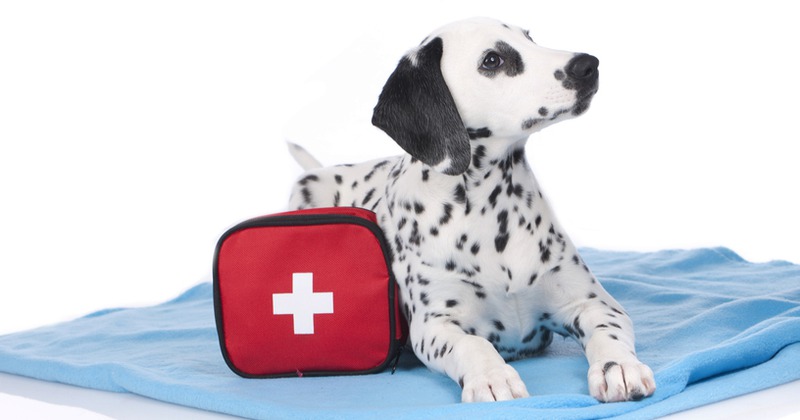
As a pet owner, you know that your furry friends can be curious creatures, often finding themselves in precarious situations. It’s also no secret that they can’t voice their discomfort as humans do. So when emergencies strike, quick action and knowing what to look for are crucial. You hope that you’ll never face a pet emergency, but it’s vital to be prepared if one comes up.
Recognizing the Signs of a Pet Emergency
As loving pet owners, we must keep a watchful eye on our furry friends. They can’t tell us when they’re in pain or feeling ill, so interpreting their behavior and physical condition becomes our job. To better prepare for those critical situations, let’s explore the common signs that your pet is experiencing an emergency and needs immediate medical attention.
List of Signs Indicating a Pet Emergency
When your pet’s health takes a sudden turn, every second can make a difference. Here are some telltale signs and symptoms to watch out for:
1. Difficulty Breathing
Watch for any form of labored breathing, choking sounds, or non-stop coughing. These symptoms could mean your pet has an obstruction in their airway, is suffering from an allergic reaction, or is dealing with a heart or lung issue.
2. Non-Stop Bleeding
Bleeding, especially when it’s severe or doesn’t seem to cease, is a clear red flag. Whether it’s an open wound or internal bleeding manifested through the nose or rectum, immediate veterinary help is required.
3. Urinary or Bowel Troubles
Difficulty or inability to urinate or defecate can indicate a blockage or other severe issues in the digestive tract. This is particularly alarming for male cats that may suffer from urinary blockages, a life-threatening condition.
4. Displays of Severe Pain
If your pet is in pain, it might show it through constant whining or crying, shaking, and being antisocial. They could also exhibit aggression when touched, a notable change in posture, or reluctance to move.
5. Neurological Symptoms
Seizures, staggering, sudden disorientation, or collapse should prompt immediate action. These symptoms can signify a range of serious neurological conditions that might get worse without quick intervention. Becoming familiar with what’s normal for your pet will also help you recognize when something’s amiss. If you notice any of these symptoms, or if your gut tells you that something’s not right, don’t hesitate to reach out to your vet or an emergency clinic as soon as you can.
If you’re the proud parent of a new kitten, you’ll want to establish a relationship with a solid kitten vet early on. Regular visits can help your kitten grow into a healthy and happy adult, and in the unfortunate event of an emergency, you’ll have a trusted professional to turn to.
Handling Specific Emergencies
We’ll now delve into some specific emergencies that demand you put on your cape and jump into action. Recognizing these issues and understanding what to do can make a significant difference in outcomes for your pet.
1. Poisoning
If you suspect your pet has ingested something toxic, it’s a race against time. Common household items like certain plants, human medications, and even some human foods (like chocolate for dogs) are potentially deadly. Symptoms of poisoning can include vomiting, diarrhea, drooling, or lethargy. Your vet can provide instructions on what to do next, but you might also need to contact a pet poison hotline immediately.
2. Severe Injuries
Pets that have been hit by a car, fallen from a height, or suffered deep cuts need urgent care. Limit movement to prevent further injury, and get to your veterinarian as quickly as possible. If you’re dealing with bleeding, apply pressure with a clean cloth to the wound while you travel to the clinic.
3. Choking
A pet that is choking can become frantic. If you can safely reach the object, try to remove it. However, you must be careful — a panicking animal may accidentally bite. Situations like these are when your vet or an urgent pet emergency clinic in Ruckersville comes in handy, as they have the skills and tools to resolve these life-threatening situations swiftly.
Preparing for Emergencies Ahead of Time
Hope for the best but prepare for the worst; that’s a good mantra for pet parents. Here are some pointers to keep you one step ahead:
-
Keep your vet’s number and an after-hours emergency clinic number handy.
-
Know the basics of pet first-aid and have a kit ready.
-
Keep updated medical records easily accessible.
-
Understand your pet’s normal behavior so you can notice when something is off.
It might seem like a lot to take on, but remember, you’re not alone. Veterinarians and pet health professionals dedicate their careers to helping you keep your pets safe and healthy, and they’re just a call away when things go south.
When to Consider Pet Euthanasia?
Recognizing when a pet’s quality of life has deteriorated beyond recovery is one of the hardest decisions a pet owner may face. Sometimes, the kindest choice is to let them go peacefully. This is where compassionate cat euthanasia comes into play. It’s a personal, often very emotional decision, but veterinarians are trained to guide you through the process, ensuring your pet’s comfort and dignity in their final moments.
Final Thoughts
While we all hope that our pets stay safe and healthy, it’s important to be ready for anything. Understand the signs of common emergencies, know where your local urgent pet emergency clinic is, form a bond with your kitten vet, and consider the option of compassionate cat euthanasia when it comes to end-of-life care. Equipped with this knowledge, you can be the superhero your pet deserves.























































